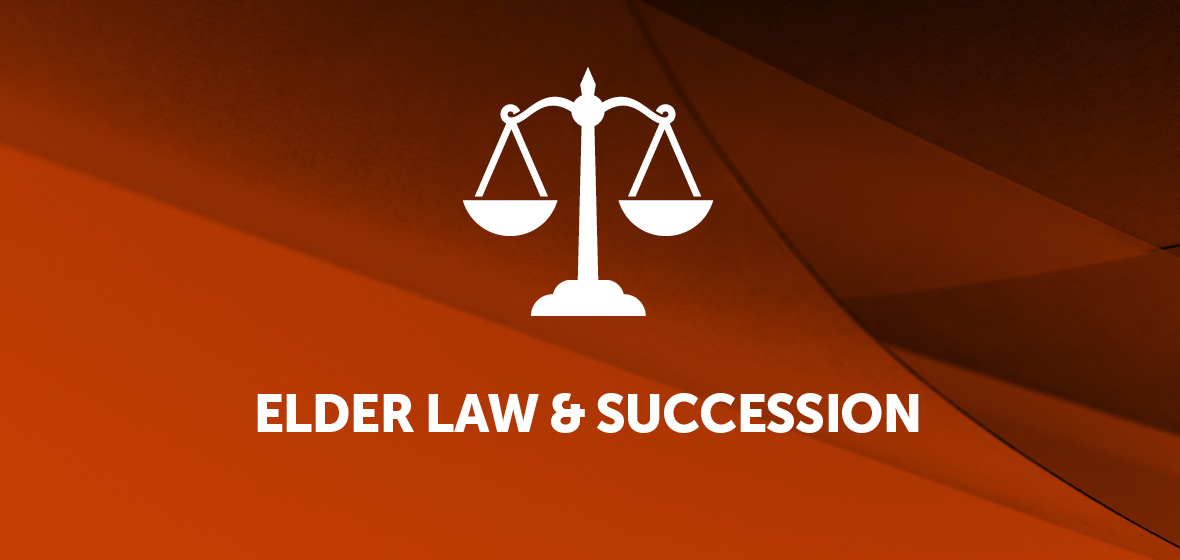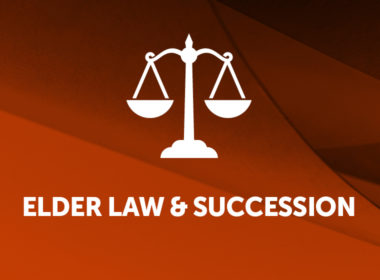Key decisions
- Gooley v Gooley [2020] NSWSC 798
- Jalife v McIntyre [2020] NSWSC 799
- Hastings v Hastings [2020] WASC 209
- Estate of Theresa Katalinic; Vea & Katalinic v Katalinic [2020] NSWSC 805
- Re Coghlan; Merriman v Attorney-General for the State of Victoria [2020] VSC 392
- Case 652713 (Mercer Superannuation (Australia) Ltd (trustee))
- The MEND (MEseNchymal coviD-19) Trial: A Pilot, Open Label, Randomised Controlled Clinical Trial to Investigate Early Efficacy of CYP-001 in Adults Admitted to Intensive Care with COVID-19 (Protocol Version 2.0 dated 30 April 2020) [2020] NSWCATGD 17
- James Edward Donnelly as executor of the estate of Sarah Shulman v Donnelly [2020] WASC 254
- Vella v Vella [2020] NSWSC 849
- Vella v Vella; Vella v Vella (No 2) [2020] NSWSC 1032
- Brindley v Wade (No 2) [2020] NSWSC 882
- Poche v Poche [2020] NSWSC 835
Death and taxes – investigation into ATO systems and processes for dealing with deceased estates
The Inspector-General of Taxation and Taxation Ombudsman (‘IGTO’), Ms Karen Payne, has released a report of her investigation into ATO systems and processes for dealing with deceased estates. The report emphasises that it is important for tax administration to work when the deceased’s estate is being administered without a grant of representation. The report acknowledges that finalising the deceased’s tax affairs after their death – including notifying the ATO of the death, lodging outstanding tax returns, paying taxes and claiming refunds – is complicated. The Inspector-General called for clarity on these issues to assist representatives of the deceased, ‘as this can affect their personal liability (and reputation), the timing and value of distributions and asset transfers and ultimately equity as between beneficiaries’.
The report considered that the ATO’s current policy ‘creates an unsatisfactory and uncertain position for representatives of a deceased which do not require probate or letters of administration and especially for representatives seeking tax credits or refunds and how this may be achieved’. The IGTO noted that deceased estates are currently required to use the standard Trust Tax Return form that is used by trusts. The instructions for completing this form run to 260 A4 pages. The report observes that this ‘standard form trust tax return is not well designed for a deceased estate – it is unnecessarily complicated and asks for irrelevant information in relation to deceased estates’.
The ATO has responded to the report by acknowledging that ‘there are three main areas of change that would significantly improve the client experience’. The third is ‘an approach for simple estates that do not have probate or letters of administration that meets people’s needs’. There is no specific change or timeframe referred to in the response.
Named executor should not use estate funds to pay legal costs concerning contested validity of will
Melville Gooley died in December 2017 with an estate of $31 million. His two surviving daughters brought proceedings to obtain a grant in solemn form of his last will made in July 2014. His son, who was not a beneficiary by that will, disputed the validity of that will and sought to propound an earlier will. After the deceased’s death the daughters opened a bank account styled Executors of the Estate of the deceased. Thereafter, over $1.4 million was paid into the account and the plaintiffs’ legal costs were paid from this account. The defendant filed a notice of motion seeking the appointment of an interim administrator of the estate on the basis that the plaintiffs were using estate funds to fund the litigation.
The Court decided the plaintiffs had no authority to pay their legal costs of the proceeding from estate funds. That was because the validity of the July 2014 Will under which the plaintiffs claimed to derive authority as executors was in dispute in the proceeding. ‘Unless and until that dispute is resolved in the plaintiffs’ favour, it is uncertain whether the plaintiffs have the status and authority of executors of the estate and they are not entitled to spend estate funds on the assumption that they will be found to be the rightful executors in due course … Whether or not the plaintiffs’ legal costs of the probate proceeding will ultimately be paid out of estate funds depends not on whether the plaintiffs are named as executors under the will that is held to be valid, but on whether the Court in the exercise of its discretion … makes an order that the plaintiffs’ costs of the probate proceeding be paid out of the estate’ (Gooley v Gooley [2020] NSWSC 798 (Williams J) at [92]–[93]; sim [139]).
As to the appointment of an administrator, the Court stated that ‘[t]he object of an appointment of administrator pendente lite is to ensure that the deceased estate is managed and preserved for the benefit of those persons who may ultimately be found in the suit to be entitled to it’ (at [126]). The Court must be satisfied that the assets of the estate are in some jeopardy, and the appointment of an administrator pendente lite will remove, or at least reduce, that jeopardy. However, it is not necessary that the jeopardy arises from some misconduct on the part of a person dealing with or claiming to preserve the assets of the deceased estate (at [125]).
The Court considered that the risk that the plaintiffs may have used estate funds to pay their personal legal costs without a court order permitting those costs to be paid out of the estate, and may continue to do so in the absence of some undertaking or restraint, is likely to generate needless further litigation. ‘The appointment of an administrator pendente lite to hold and preserve the assets of the estate pending the determination of the probate proceeding would remove the basis for further suspicion to develop concerning what future dealings the plaintiffs may undertake with the assets of the estate’ (at [140]).
However the Court deferred appointing an administrator, and gave the plaintiffs an opportunity to undertake to provide a detailed explanation of the operation of the estate account and to refrain from using estate funds to meet their legal costs.


